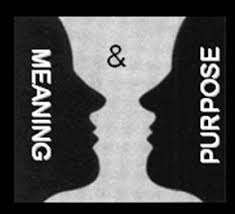 In my last article, I noted the Navy SEALS 8 secrets to grit and resilience as discussed by ladders.com writer Eric Barker. I am not a SEAL so I don’t know whether these secrets are taught specifically by the program or are learned through its methods and Mr. Barker simply put a name to them through his interview with his SEAL friend. I do want to say that my respect and admiration for these service people is not in question. I certainly hold them in the highest esteem. The fact that Mr. Barker calls grit and resilience an emerging science is a bit disturbing to me considering these concepts are the very same concepts that brought our country to greatness in the first place. I fear that we have just gotten complacent in their instruction during the formative years. Let’s look at the first few in an educational light. Much of what Mr. Barker discusses will be echoed here but from our standpoint of the educational process of young people and their pursuit of wisdom.
In my last article, I noted the Navy SEALS 8 secrets to grit and resilience as discussed by ladders.com writer Eric Barker. I am not a SEAL so I don’t know whether these secrets are taught specifically by the program or are learned through its methods and Mr. Barker simply put a name to them through his interview with his SEAL friend. I do want to say that my respect and admiration for these service people is not in question. I certainly hold them in the highest esteem. The fact that Mr. Barker calls grit and resilience an emerging science is a bit disturbing to me considering these concepts are the very same concepts that brought our country to greatness in the first place. I fear that we have just gotten complacent in their instruction during the formative years. Let’s look at the first few in an educational light. Much of what Mr. Barker discusses will be echoed here but from our standpoint of the educational process of young people and their pursuit of wisdom.
- Purpose and Meaning – As we learn to persevere, it is through finding purpose and meaning in what we do. Our minds will quit long before our bodies do. Coaches know this to be true as we push our athletes to continue to perform even when they want to quit. I am a high school wrestling coach. I tell my athletes not to quit even when their mind says give up. I don’t expect them to succeed in the task necessarily but I do expect them to try and try again. By doing this, we condition the psyche to overlook the mind saying give up thereby negating the quit reflex and teaching the body and mind to continue in the face of what feels like defeat. As Mr. Barker points out, this is intrinsic motivation that we are trying to create. If a person, athlete or not, possesses an internal purpose or intrinsic motivation, they are much more likely to continue to fight when the going gets tough.
- Make it a Game – Game theory is interesting to say the least. The idea that we can trick the mind into continuing into difficult times through creating a game to deal with hardship is real. I have pushed athletes and students to the brink on the mat and in the classroom. Creating a game of the hardship is a very good way of cultivating resilience. If there is a game to win, even if it is with the self, young people will try harder. I have listened to young people make a contest out of pushing themselves physically by trying to get one more rep than they did last time or go one more minute than they did before. Building an intrinsic competition can be one way to continue working toward success through difficult times.
These are only the first two of 8 secrets as outlined by Eric Barker that we can apply to education in order to help show young people how to be gritty. In the old days, we would have worked in unison to make these a reality. I wonder if we can find a way to do that again. Every person has purpose and meaning in life, they just need help finding it. When they do, they also find intrinsic motivation. When things get tough, the load can be lightened with gaming as a stress reliever. I suppose it is falling more and more on the shoulders of educators to make this happen. Perhaps we can slide these kinds of lessons between teaching to the test and standards attainment in the hopes of teaching kids to pursue true success. We will continue to cover secrets 3-8 in subsequent articles. Until then, keep on keeping on!
https://themotivatededucator.com